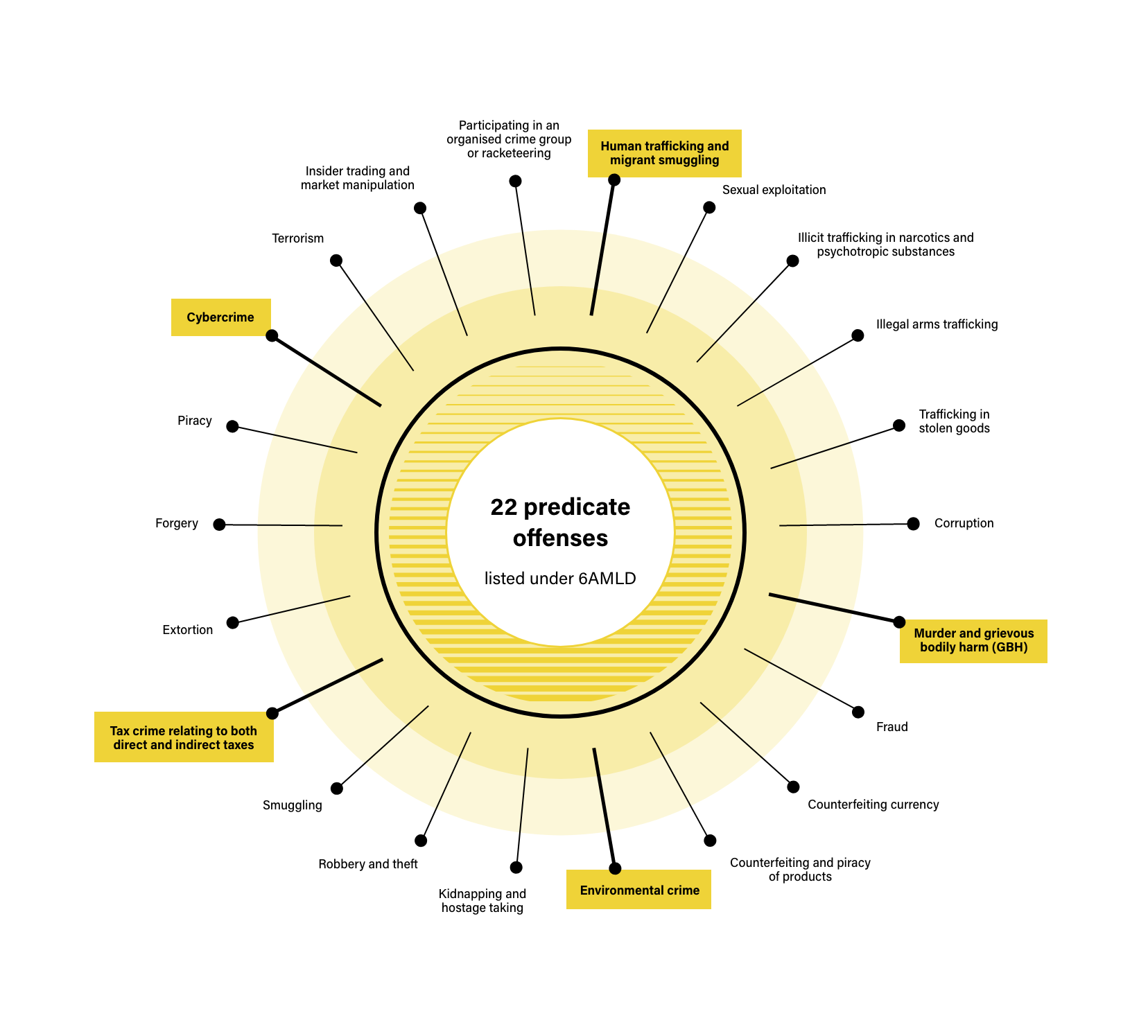
The Challenge of PEPs
Read our practical guide on the PEP landscape and how UK firms should navigate it.
Download nowFinancial crime refers to any criminal conduct relating to financial services or markets. As regulators and monetary authorities introduce new strategies to detect and prevent financial crime, criminals develop increasingly sophisticated methods of evading scrutiny. Most jurisdictions have established organizations and agencies dedicated to preventing financial crime, including the Financial Crimes Enforcement Network (FinCEN) in the US and the Financial Conduct Authority (FCA) in the UK.
Financial institutions (FIs) are required to combat financial crime by adhering to the regulations set by the relevant authorities. Given the diversity of regulatory environments, firms operating within specific countries must comply with their respective national regulatory bodies. However, firms with global operations face the added complexity of navigating and adhering to various international regulations. Non-compliance carries severe consequences, including reputational damage, financial penalties, and potential criminal charges. It is crucial for these organizations to fully comprehend the criminal risks pertinent to their operations and to implement effective measures to mitigate these risks.
This article will cover:
Financial crime covers a broad spectrum of criminal activity, one that rarely, if ever, stands still. New and highly sophisticated types of scams are on the rise. According to a report by Visa, ‘pig butchering’—where victims are approached online by criminals using fake profiles and tricked into investing in fraudulent cryptocurrency schemes—has become one of the top four threats faced by consumers.
Meanwhile, as emerging technologies become ubiquitous, they pose a corresponding financial crime risk. AI-powered ‘fraud as a service’ tools have entered the market, removing the barrier of technical expertise for those attempting to commit fraud, while the expansion of the Internet of Things means that ransomware attacks are expected every two seconds, costing $265 billion, by 2031.
Money laundering is one of the most significant offenses: when criminals derive funds from illegal activities, they need to process that money within the legitimate financial system in a way that disguises its origins. Money laundering refers to the wide range of methods for disguising the profits of crime.
Often, different kinds of financial crime are interlinked. The following are all predicate offenses in money laundering, meaning they tie into the broader crime of money laundering by generating the funds that need to be laundered.

Although the spectrum of these crimes is broad and varied, it is possible to identify a few typical perpetrators, both individuals and groups. These are often linked to specific offenses and include:
However, it is a mistake – not to mention an AML risk – for FIs to assume perpetrators are limited to these categories. As ComplyAdvantage’s State of Financial Crime consumer survey revealed, one in five people say they’re comfortable committing so-called ‘friendly fraud’ such as disputing a payment after receiving an inadequate response from a merchant, disputing a payment that turned out to be legitimate, or claiming a refund for an item they didn’t return. One 2024 study suggests around a quarter of adults in the UK commit at least one economic crime per year.
The fact that behaviors linked to fraud, money laundering, and similar offenses cannot be limited to a few narrow criminal typologies complicates firms’ understanding of financial crime and exacerbates the challenges they face in fighting it.

Read our practical guide on the PEP landscape and how UK firms should navigate it.
Download nowTerrorist organizations establish large and complex funding networks to finance their operations, raising money in several ways. These may include:
Any money terrorist organizations raise is subsequently laundered through legitimate financial services and institutions. According to a report on the subject by the Financial Action Task Force (FATF), this is frequently done in a few different ways:
Financial crimes such as money laundering and terrorist financing tend to involve convoluted chains of transactions between opaque entities and across borders, allowing criminals to exploit regulatory inconsistencies between jurisdictions and making it difficult to trace funds.
Accordingly, FIs and other regulated firms must develop AML/CFT programs to detect suspicious activity and prevent criminals from using their services to commit financial crimes. When firms detect suspicious activity, they must inform the relevant authorities.
Firms should consult the specific jurisdictional AML/CFT regulations they are subject to – key examples being the US’ Bank Secrecy Act (BSA), the UK’s Proceeds of Crime Act (POCA), and the EU’s anti-money laundering directives (AMLD) – when designing their compliance program. Most jurisdictions develop legislation in alignment with guidance set out by the FATF.
Crucial to any firm’s compliance effort is its ability to use advanced AML/CFT technology. In the context of the extensive data collection and analysis requirements of modern compliance, automated solutions allow firms to onboard customers and detect suspicious behavior far more efficiently and accurately than manual-only teams. AML software enhanced by machine learning also allows firms to adapt to emergent financial crime methodologies and changes in regulatory requirements caused by new legislation. In particular, firms should look for solutions that enable them to build the following measures into their AML/CFT programs:
Explore the trends shaping today's financial landscape and their implications for the year ahead.
Download your copyOriginally published 12 May 2014, updated 22 January 2025
Disclaimer: This is for general information only. The information presented does not constitute legal advice. ComplyAdvantage accepts no responsibility for any information contained herein and disclaims and excludes any liability in respect of the contents or for action taken based on this information.
Copyright © 2025 IVXS UK Limited (trading as ComplyAdvantage).